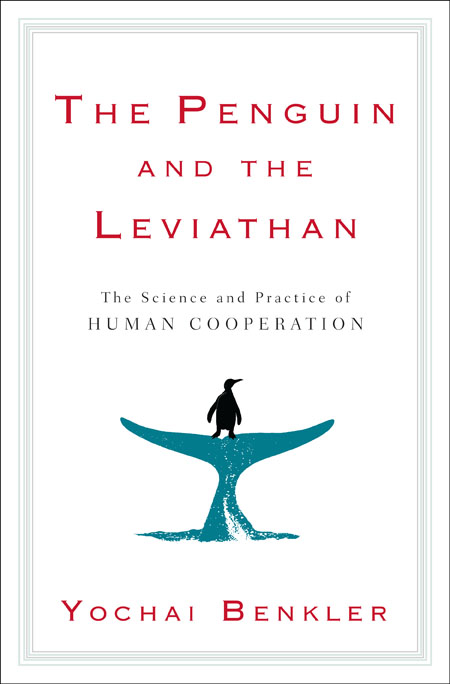Ruth Catlow, Marc Garrett (eds.): Collaboration and Freedom – The World of Free and Open Source Art (2011)
Filed under wiki book | Tags: · art, collaboration, collaborative art, floss, open source
“A collection of artworks, texts and resources about freedom and openness in the arts, in the age of the Internet. Freedom to collaborate – to use, modify and redistribute ideas, artworks, experiences, media and tools. Openness to the ideas and contributions of others, and new ways of organising and making decisions together.
This non exhaustive collection is intended to inspire, inform and enable people to apply peer-to-peer principles for making things and getting organised together. We hope that all art lovers, makers, thinkers, organisers and strategists will find something for them from this set of imaginative, communitarian and dynamic contemporary practices.”
Curated by Ruth Catlow and Marc Garrett
With additional texts by Charlotte Frost and Rob Myers.
Produced by Furtherfield.
Commissioned by Arts Council England for Thinking Digital, in 2011.
Markus Miessen: The Nightmare of Participation: Crossbench Praxis as A Mode of Criticality (2010)
Filed under book | Tags: · art criticism, collaboration, democracy, participation

“Welcome to Harmonistan! Over the last decade, the term ‘participation’ has become increasingly overused. When everyone has been turned into a participant, the often uncritical, innocent, and romantic use of the term has become frightening. Supported by a repeatedly nostalgic veneer of worthiness, phony solidarity, and political correctness, participation has become the default of politicians withdrawing from responsibility. Similar to the notion of an independent politician dissociated from a specific party, this third part of Miessen’s “Participation” trilogy encourages the role of what he calls the “crossbench practitioner,” an “uninterested outsider” and “uncalled participator” who is not limited by existing protocols, and who enters the arena with nothing but creative intellect and the will to generate change.
Miessen argues for an urgent inversion of participation, a model beyond modes of consensus. Instead of reading participation as the charitable savior of political struggle, Miessen candidly reflects on the limits and traps of its real motivations. Rather than breading the next generation of consensual facilitators and mediators, he argues for conflict as an enabling, instead of disabling, force. The book calls for a format of conflictual participation—no longer a process by which others are invited “in,” but a means of acting without mandate, as uninvited irritant: a forced entry into fields of knowledge that arguably benefit from exterior thinking. Sometimes, democracy has to be avoided at all costs.”
Includes an introduction by Eyal Weizman, a conversation with Chantal Mouffe, an interview by Hans Ulrich Obrist, and post-scripts by Bassam El Baroni, Jeremy Beaudry, and Carson Chan.
Publisher Sternberg Press, 2010
ISBN 1934105074, 9781934105078
304 pages
PDF (updated on 2012-8-6)
Comment (0)Yochai Benkler: The Penguin and the Leviathan: How Cooperation Triumphs Over Self-Interest (2011)
Filed under book | Tags: · biology, business, collaboration, economics, floss, neuroscience, politics, psychology, society, sociology, software, technology, web

What do Wikipedia, Zip Car’s business model, Barack Obama’s presidential campaign, and a small group of lobster fishermen have in common? They all show the power and promise of human cooperation in transforming our businesses, our government, and our society at large. Because today, when the costs of collaborating are lower than ever before, there are no limits to what we can achieve by working together.
For centuries, we as a society have operated according to a very unflattering view of human nature: that, humans are universally and inherently selfish creatures. As a result, our most deeply entrenched social structures – our top-down business models, our punitive legal systems, our market-based approaches to everything from education reform to environmental regulation – have been built on the premise that humans are driven only by self interest, programmed to respond only to the invisible hand of the free markets or the iron fist of a controlling government.
In the last decade, however, this fallacy has finally begun to unravel, as hundreds of studies conducted across dozens of cultures have found that most people will act far more cooperatively than previously believed. Here, Harvard University Professor Yochai Benkler draws on cutting-edge findings from neuroscience, economics, sociology, evolutionary biology, political science, and a wealth of real world examples to debunk this long-held myth and reveal how we can harness the power of human cooperation to improve business processes, design smarter technology, reform our economic systems, maximize volunteer contributions to science, reduce crime, improve the efficacy of civic movements, and more.
For example, he describes how:
• By building on countless voluntary contributions, open-source software communities have developed some of the most important infrastructure on which the World Wide Web runs
• Experiments with pay-as-you-wish pricing in the music industry reveal that fans will voluntarily pay far more for their favorite music than economic models would ever predic
• Many self-regulating communities, from the lobster fishermen of Maine to farmers in Spain, live within self-regulating system for sharing and allocating communal resources
• Despite recent setbacks, Toyota’s collaborative shop-floor, supply chain, and management structure contributed to its meteoric rise above its American counterparts for over a quarter century.
• Police precincts across the nation have managed to reduce crime in tough neighborhoods through collaborative, trust-based, community partnerships.
A must-read for anyone who wants to understand the dynamics of cooperation in 21st century life, The Penguin and the Leviathan not only challenges so many of the ways in which we live and work, it forces us to rethink our entire view of human nature.
Publisher Crown Publishing Group, 2011
ISBN 0307590194, 9780307590190
272 pages
PDF (EPUB)
Comment (0)
